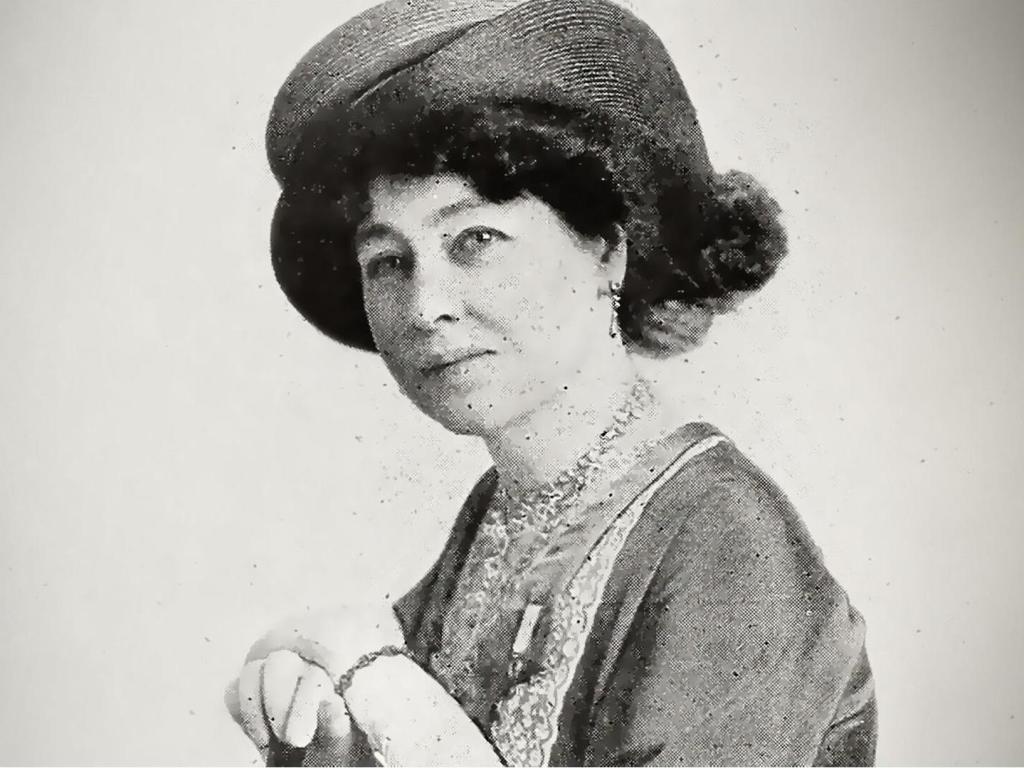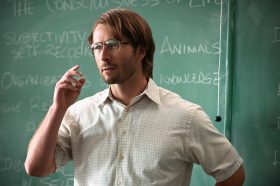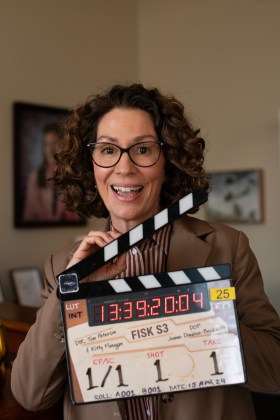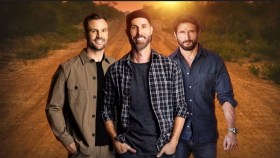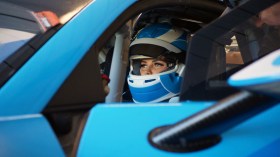Image: Alice Guy-Blaché, the writer, director and producer of more than a thousand films. Source: Backlot Films.
When cinema turns the lens on itself, it can be guilty of preaching to the converted, crafting documentaries that retrace the past for willing, knowing and already-engaged viewers. Steeped in the nascent days of the industry, Be Natural: The Untold Story of Alice Guy-Blaché doesn’t target a different audience, but rather a different outcome. Instead of rehashing cinephiles’ existing knowledge of film’s pioneers, early milestones and first successes, writer/director/editor Pamela B. Green excavates a tale, and a filmmaker, whose importance haven’t been given the credit that they deserve.
Hence Be Natural’s ‘untold story’ subtitle. For too many, Alice Guy-Blaché’s impact upon the medium is simply unknown. As summarised in a brisk, information-filled, animated introductory sequence narrated by Jodie Foster, the eponymous figure amassed feats that place her at the apex of cinema history — writing, directing and producing more than a thousand films across two continents before the 1920s, helping to shape French studio Gaumont in its startup phase, and opening and running her own US-based operations, Solax, in the pre-Hollywood era. She was in the room when the Lumiere brothers unveiled their maiden foray into moving pictures, then worked her way up from a secretary to thriving creative force. In the process, Guy-Blaché led the charge in narrative filmmaking, oversaw the first use of tinted colour and synchronised sound, and helmed the first film with an all-African-American cast.
As Green understandably enjoys telling audiences several times over — through Foster’s purposeful yet always witty voiceover, plus the director’s own vocal involvement — Guy-Blaché was cinema’s first female filmmaker. Be Natural doesn’t merely focus on that extraordinary fact, however, but on its subject’s lack of recognition in the cinematic canon. How does someone with such a stunning list of achievements become little more than a footnote in many film texts, if that? How does the obvious factor, gender, influence her historical standing? To answer these questions, which are inescapably intertwined in Guy-Blaché’s life story, Green deploys an approach that’s as savvy as it is entertaining. Be Natural not only serves up a biographical documentary, but a detective quest, unearthing lost details, charting its subject’s rise and fall, and examining sexist attitudes long before #TimesUp, as well as tracing family connections, trawling through personal archives, sharing Guy-Blaché’s work and introducing her to the unacquainted.
That latter camp is sizeable; early in the film, Green assembles a parade of famous interviewees into a wall of talking heads, letting their lack of awareness about Guy-Blaché create a deafening symphony. Be Natural chiefly uses the high-profile likes of Patty Jenkins, Geena Davis, Julie Delpy, Ava DuVernay, Mark Romanek, Ben Kingsley and Andy Samberg as little more than soundbites — blink and you’ll miss some of them — but this recognisable roster of talent also has another significant purpose. If industry luminaries of this calibre haven’t heard of Guy-Blaché despite her undeniable influence on the medium they’ve spent their lives working in, what hope has the rest of the cinema-going world had over the past century? Realisations such as this should be infuriating, and they are, weaving an unmistakable thread of anger throughout this primarily celebratory documentary. It certainly infects one of the film’s clear-cut highlights, with the wry Guy-Blaché herself well-aware of her unfortunate path when she’s seen chatting about her work in the 1950s and ’60s.
Redressing history’s omissions is a labour of love, of course, which also explains Be Natural’s unwavering mood and energy. Occasionally to the feature’s detriment, Green almost can’t contain her enthusiasm, zipping from one part of Guy-Blaché’s tale to the next — and between creative interludes — at a considerable pace. Some sections prove an unabashed delight, such as the movie’s spirited tour of Paris with Guy-Blaché and Gaumont’s descendants, all while portions of the former’s work are superimposed over their real-life locations. Some areas lose their zeal through repetition, including repeated Skype calls, as well as the efforts of film historians to source and use the same kind of camera that Guy-Blaché’s early work was made with.
Still, Be Natural takes viewers on an informative and spirited ride through a chapter of the past that’s long been left closed, even when the movie wavers slightly in its execution. Green always has an ace up her sleeve to fall back on — seen in fits and bursts, spanning multiple genres, and ranging from the fairy tale-esque The Cabbage Fairy, to infectious comedy The Drunken Mattress, to Hunchback of Notre Dame adaptation Esmerelda, Guy-Blaché’s work remains the documentary’s bewitching constant. Indeed, hearing well-known figures espouse her greatness in snippets only relays part of the story; watching the colour, vibrancy, creativity and experimentation in her films makes that case without further explanation. It’s the titular ‘be natural’ approach, with the feature taking its name from the mantra that Guy-Blaché had plastered across Solax’s walls in two-feet-high letters. Opening the world’s eyes to reality has a powerful effect, as proves especially true when paying tribute to a woman who’s merits have been left unsung for far too long.
| 3.5 stars |
★★★☆
|
Be Natural: The Untold Story of Alice Guy-Blaché
Director: Pamela B. Green
US, 2018, 103 mins
Australian release date: August 1
Distributor: The Backlot Films
Rated: G
Actors:
Director:
Format:
Country:
Release:
